Which is more important? Plot or character? Anyone currently doing NaNoWriMo is all, “WORDS! ONLY WORDS MATTER NOW! Get off my case, Blogger Chick. I’ll figure out plot and character later.”
*awkward silence*
To write great fiction, we need both. Plot and characters work together. One arc drives the other much like one cog serves to turn another, thus generating momentum in the overall engine we call “STORY.”
If we goof up plot? Readers/Audiences get confused or call FOUL. Watch the movie Ouija for what I am talking about *shakes head*.
Goof up characters? No one cares about the plot.
New writers are particularly vulnerable to messing up characters. We drift too far to one end of the spectrum or the other—Super-Duper-Perfect versus Too Dumb to Live—and this can make a story fizzle because there is no way to create true dramatic tension.
This leaves us (the frustrated author) to manufacture conflict and what we end up with is drama’s inbred cousin melodrama.
If characters are too perfect, too goody-goody and too well-adjusted? If they always make noble, good and professional decisions? Snooze fest.
Again. Bad decisions make great fiction.
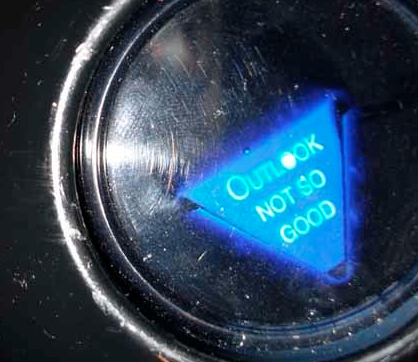 Of course, the other side of that is what I call The Gilligan Effect. Yes, I am dating myself here and I apologize if I upset any DIE-HARD Gilligan’s Island fans, but I remember being a kid and this show nearly giving me an aneurism (being the highly logical child I was).
Of course, the other side of that is what I call The Gilligan Effect. Yes, I am dating myself here and I apologize if I upset any DIE-HARD Gilligan’s Island fans, but I remember being a kid and this show nearly giving me an aneurism (being the highly logical child I was).
After the third time Gilligan botched up the escape off the island? Kristen would have gone Lord of the Flies and Piggy Gilligan would have mysteriously gone “missing.”
I also recall how the stranded party could make everything out of coconuts except a freaking BOAT, and the only reason I kept watching was because it was better than being locked outside to play in heat that shifted asphalt to a plasma state.
Yay, Texas summers!
Yet, I’ve read books with characters that make Gilligan look like a rocket scientist…then been compelled to hurl the book across the room.
Flawed vs. Too Dumb to Live
Today we are going to talk about how we can make characters flawed without crossing over into TDTL (Too Dumb To Live) Territory. This commercial never gets old *giggles*
Let’s hide behind the CHAINSAWS!!!! *clutches sides*. Or this one about gals tripping too many times in horror movies. BWA HA HA HA HA HA!
Okay, I’m back *giggles*.
Great stories are filled with characters making bad decisions, and when this is done well, we often don’t really notice it beyond the winding tension in our stomach, the clenching that can only be remedied by pressing forward and seeing if it works out okay.
When characters are properly flawed, the audience remains captured in the fictive dream.
When we (the writer) goof up? The fictive dream is shattered. The audience is no longer part of the world because they’re too busy fuming that anyone could be that stupid. They also now cease to care about the character because, like Gilligan? They kind of want said TDTL character to die.
If this is our protagonist? Extra bad. Our protagonist should make mistakes, just not ones so egregious the reader stops rooting for him/her.
Bad Decisions Birthed from The Flaw
When we create a protagonist, we should remember that all strengths have a complimentary weakness. If a character has never been tested by fire, the protagonist is blind to the weakness.
For instance, great leaders can be control freaks. Loyal people can be overly naive. Compassionate people can be unrealistic. Y’all get the idea.
This dual nature of human strength paired with fallibility is why plot is just as critical.
Plot as Crucible
The plot is the crucible that tests the mettle and reveals and fires out the flaw. The strength ultimately will have to be stronger than the weakness because this is how the protagonist will grow to become a hero by story’s end.
A great example of this is one of my favorite movies, The Edge. Anthony Hopkins plays billionaire Charles Morse. Charles is extremely successful and very much in his own head. Though he’s a genius, he lives the sheltered existence of the uber-wealthy.
What happens when all that “head-knowledge” is what he needs to survive a plane crash in the unforgiving wilderness?

When the plane crashes and he and the other two survivors make it to shore, Morse does the right thing. He knows they need to get dry before they all die from hypothermia. He also realizes Stephen, the photographer, is in full panic.
What is the intelligent thing to do? Put the photographer to work doing something fruitful to take his mind off his fear.
Bright (Bad) Idea Fairy
The problem, however, is Morse assumes the photographer has the same knowledge-base and doesn’t take time to show Stephen how to use a knife properly and the man is badly injured as a result. Now we’ve already had a problem (plane crash) and now we have a complication (bad injury) and then it gets worse.
Morse, again, being an in-his-own-head-guy and unaccustomed to having to communicate WHY he wants certain things done, tells Robert Green to bury the blood-soaked fabric.
Green is jealous of Morse and rebellious and instead of following instructions and burying the material? He hangs the blood-soaked rags from a tree where an incoming storm whips up the scent of a newly opened All You Can Eat Buffet.
Soon, the men are being hunted by an apex predator with the munchies for humans.
***Side note here. Look at the genius in the choice of character names. Morse, a cryptic person who must unravel the “code” of his situation and realize the bear is actually the (MUCH) lesser threat. Green, the man who envies to such a degree it drives him to plot a murder. Stephen is the first to die. “Stephen” was also the first Christian martyr, the first innocent to die for the greater cause—salvation.
#DeepThoughts
Back to FLAWS
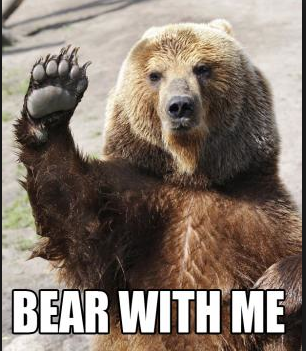 But all of this was birthed from a myriad of flaws. Morse failing to communicate and assuming his comrades are operating with the same head knowledge (because he’s never had to use this type of information in a real-world way).
But all of this was birthed from a myriad of flaws. Morse failing to communicate and assuming his comrades are operating with the same head knowledge (because he’s never had to use this type of information in a real-world way).
As a billionaire, Morse has never been required to explain himself before. He doesn’t understand that this might be a good time to START.
Additionally, the two photographers are city people who don’t have the training/understanding to know 1) NOT to drag a knife toward the body and 2) that the smallest scent of blood will draw predators. BIG ONES.
These men are used to the “civilized world.” When thrust into the wild, they make a critical error. They fail to properly appreciate that their position at the top of the food chain has drastically shifted.
Only ONE member of our stranded coterie gets that they’ve suddenly gone from ordering OFF menus to being ON the menu #DailySpecial #MarketPrice #JokesInPoorTaste…
Where was I? Oh, yes…
Bad Decisions Depend on Circumstances
Sometimes characters will make bad decisions simply because this is a completely new world or a set of circumstances they’ve never faced, thus have no way to fully appreciate. The “bad” decision was not a “bad decision” before the adventure.
A good example? Merry and Pippin in The Lord of the Rings. In the Shire, people talk and are sociable. These naive characters haven’t yet felt the consequences of this new and dangerous world.
To them? Chatting away and freely sharing information at The Prancing Pony is NOT a bad decision in their minds. Neither is frying bacon on top of a mountain.
They’ve always lived a life that if they were in a pub? They drank and made friends. If they wanted bacon? They just made bacon. They’ve never had to think beyond their mood or stomachs. The Hobbits don’t have the experiential base to grasp that fire is a “Come and Kill Me” beacon.
Bad Decisions & The Wound
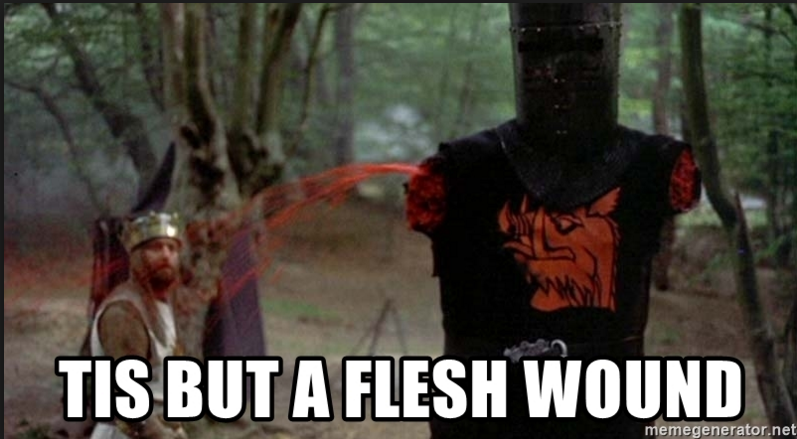
We’ve talked about The Wound in other posts. In Thelma & Louise what is the wound? A lifetime of male oppression. In Thelma’s case, her husband controls every aspect of her life.
Thus, when she finally does get on her own, she has poor judgement and is naive and that’s how she nearly ends up raped in a honky-tonk parking lot.
Louise has been a victim (shamed and alone) and doesn’t trust men or the law. Thus, her baggage is what leads her to shoot Thelma’s attacker, but then also dovetails into the really, really bad decision to run.
But if we look at all these examples from an analytical distance, these characters are just DUMB. But why aren’t they TDTL? Context. Because of plot we (the audience) are not staring down at them like specimens through a microscope. We empathize with “bad” decisions. Why? Because there’s context (their world).
Making “Stupid” Forgivable
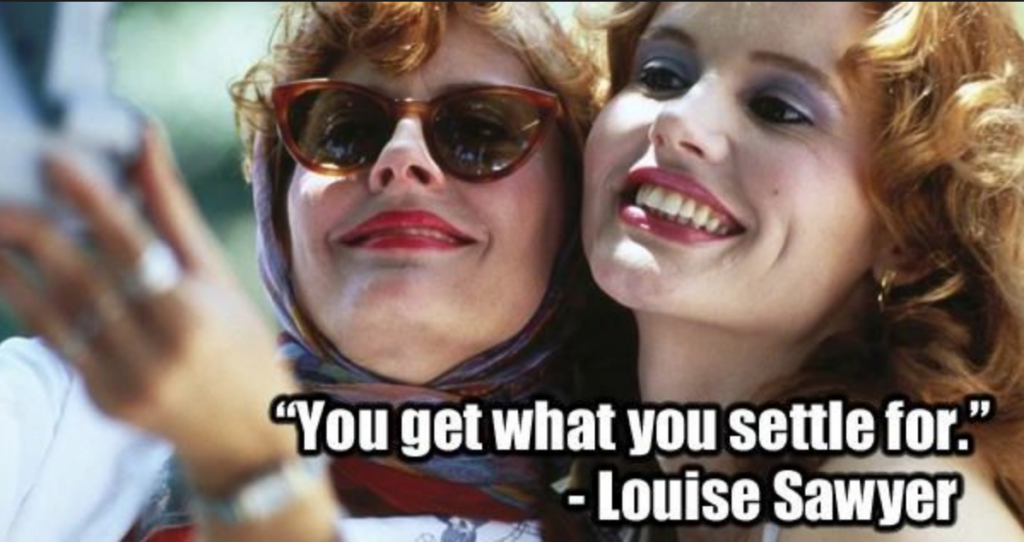
Great writing is a sort of alchemy that transforms the raw material of “stupid” into the literary gold we recognize as “damaged,” “broken,” and/or “naive”—which we have ALL been at one time or another.
This hits us in the feels. We relate, connect, and BOND with the characters because we’ve been there, done that, and have the scars to prove it.
In The Edge, “bad” decisions are forgivable because most of us are not wilderness experts. Readers can empathize with maybe doing something seriously stupid if stranded in a similar fashion.
In The Lord of the Rings we, the audience, have “been” to the Shire—and know what world created the childlike Merry and Pippin. Thus, we appreciate these characters are grossly out of their depth and give them a pass.
In Thelma & Louise we can understand how damaged people make poor decisions because, unless we’ve been living under a rock, we’ve made similar choices, and suffered consequences created from fear not reason.
What this means is that, while ALL of these characters made really wrong decisions, they are necessary and pardonable decisions that serve to drive the character arc and thus the plot’s momentum.
That is the final note on characters making bad decisions.
Plot Puppets
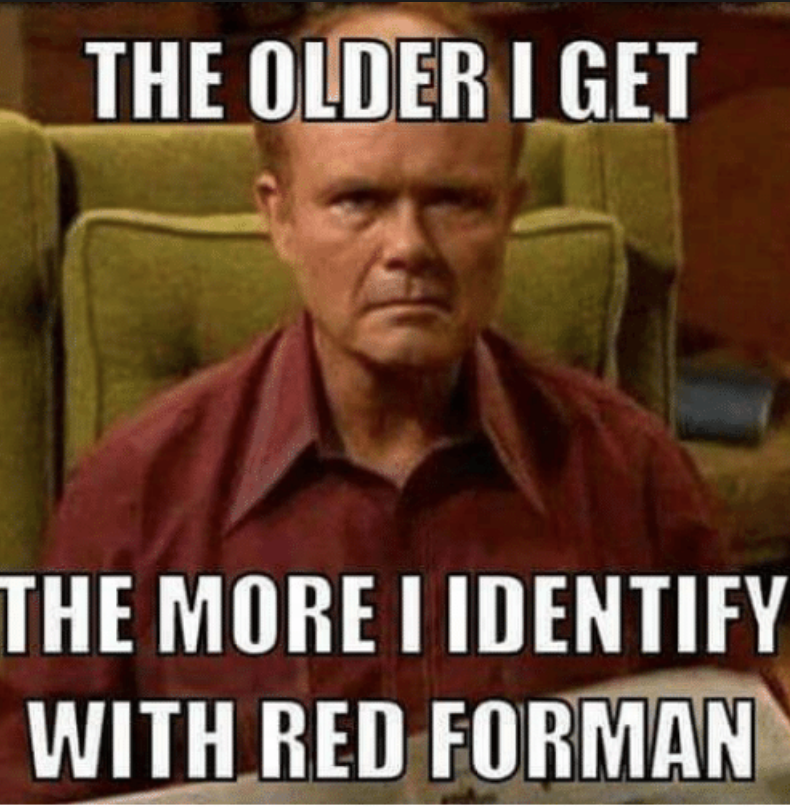
Do we have a character making a mistake, withholding vital information, acting irrationally because it is coming from a deeper place of flaws, circumstance or wounds?
Or, do we have a character playing marionette? Characters are making a mistakes because we NEED them to. The tension has fizzled, so let’s just let them do something epically stupid (and random)?
Audiences can tell the difference between mistakes that are organic and flow from deeper emotional waters versus something contrived. And we can ALL be guilty of forcing characters to make bad choices simply because we sense tension is missing. Even I have to go back and ask the tough question…WHY is this character doing this?
What are your thoughts? I love hearing from you!
What are your thoughts regarding characters making poor decisions? What are some of your favorite examples? Ever quit a book, movie, or show because you wanted everyone to DIE? What are some great examples of characters who you should hate, but you forgive? Why? Can you think of what activated empathy instead of disdain?
I would love to hear your thoughts on this.
FYI: I’m AM loading new classes. They’ll be up next post. I know I said that last time, but whatever. I lied 😛 .
What are some classes y’all need? Topics you’d like me to talk about here on the blog. I dig suggestions!
BTW: October’s winner for the comment contest is Bjørn Larssen!
Please email your 5000 word WORD document to kristen at wana intl dot com. One-inch margins, double-spaced, Times New Roman font, please. Or you are also welcome to choose to send me a query or synopsis instead. Query shouldn’t exceed 500 words and synopsis 2,500 MAX. Congratulations!
What do you WIN? For the month of NOVEMBER, for everyone who leaves a comment, I will put your name in a hat. If you comment and link back to my blog on your blog, you get your name in the hat twice. What do you win? The unvarnished truth from yours truly. I will pick a winner once a month and it will be a critique of the first 20 pages of your novel, or your query letter, or your synopsis (5 pages or less).

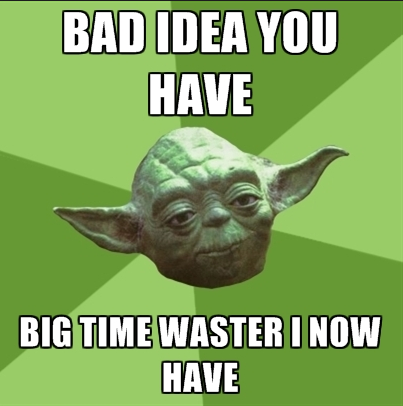

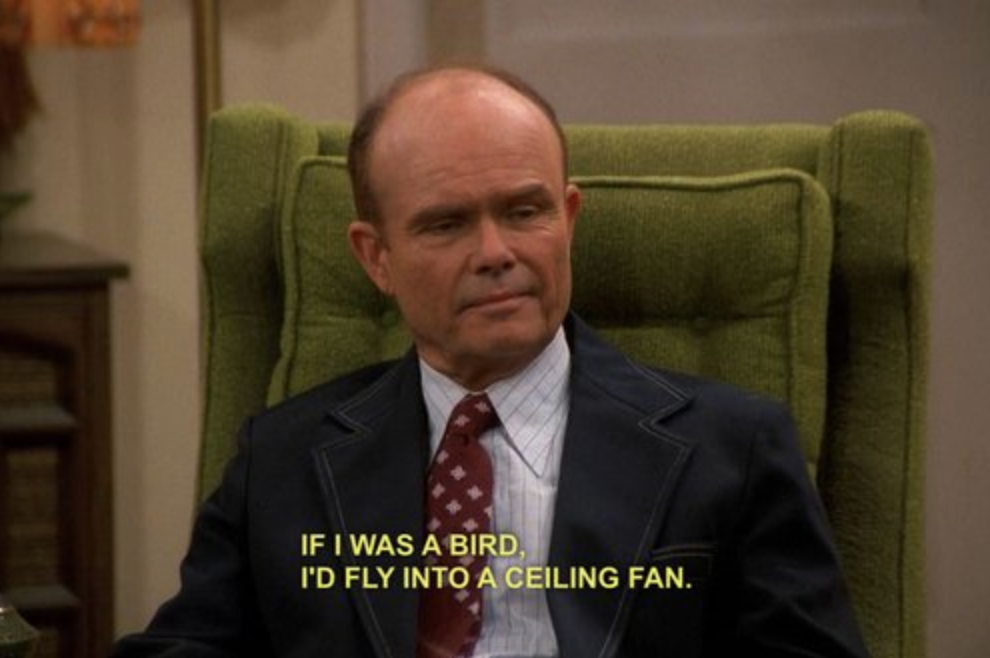







9 comments
2 pings
Skip to comment form
Thank you for this clarification of flaws and TDTL actions of the protagonists.
Ah,you have hit on ‘What Makes Good Writing?’. Slipping information as to the whys of characters’ behavior and decisions is nothing less than true art; we should all strive for it.
It is unfortunate that not all readers have the same experiences and leaned knowledge as to understand the reasoning, (or lack thereof), of the characters. I often have to speak with younger family members,(or ones who simply miss points), who don’t ‘get’ a book or movie. I love DVDs; I can point things out mid-movie or we can watch with them again, when they want to catch that they missed,(that I didn’t.I know;I am a pain at times!)
I don’t want to remember the many stories that have literally made want me throw a book,(I have to catch myself before I threw my tablet/Kindle recently), but at any point in a Jane Austen book,I will yell at the protagonist ,”If you don’t take him,I will!”
As for understanding the way the different people think or feel, the books of Liane Moriarty are well done, even if hearing the actually assumptions and thoughts of all concerned are the easy way.
My grandson had me read Angie Sage’s “Septimus Heap” and the sequel “Todhunter Moon” books.I loved them and I recommend them to mid-grade kids up to adults. Sage uses great skill with humor to have the reader learn that her characters are the sums of their experiences.
By the way, idiotic characters bother the daylights out of me, but too perfect “Mary Sue” – friends or relatives of a protagonist may be even more annoying than idiotic ones.
Love this post. You’ve explained the difference between Stupid and Flawed excellenty.
Good post, Kristen. Yes, I have met many too dumb to live characters. In the case of books, it’s easy to just close it and back away. But in TV shows or movies, it’s harder for some reason. Not sure why, but I will hang in there, hoping the TDTL character will snap out of it, or there will be a big reveal that shows WHY they did that. Usually, it doesn’t happen. Also, sort of related – there are some long-running TV shows that go TDTL too. It’s as though the writers didn’t expect the show to last so they only plotted out 2-3 seasons, then the show makes a sudden turn for the worst and keeps descending.
Gosh, and I thought I was the only one who finds these characters super-annoying. I stopped watching The Flash once he actually conquered the villian, only to go back in time to revive him. *face palm* Oh yeah, and time-wraiths would pursue him if he did. And he got the girl.I could understand if Barry developed a God complex, but it just seemed the writers were milking a dry cow
This post made me think of Scarlett O’Hara, who makes poor decisions throughout her life, some that may fall into the TDTL category, yet she is one of the most memorable characters in all of literature. Why do readers forgive her empty-headedness and focus on the wrong things? It may be because we understand that the world she has been raised in is shattering, (the crucible is the Civil War) and she is tested over and over again by frustration, loss, and poverty. By the end of the novel, she has developed an inner strength that offers hope for the future. So the emotions we feel run the gamut from amusement to pity to awe.
As ever, with your blogs, I get that sinking feeling that you’ve been there reading my WIP over my shoulder… Thanks again for your wise words. 😉
Thanks for the examples!
I do get really annoyed when I’m reading a book and the characters just become flat. All I can say is that I hope my characters have life in them. C’mon characters! Get it together.
[…] https://authorkristenlamb.com/2018/11/flawed-characters-dumb-characters/ […]
[…] characters flaws. Bonnie Randall shares 8 ways to create character flaws, and Kristen Lamb ponders the difference between flawed characters and those “too dumb to live.” Also, to help you show instead of tell about your characters, Lisa Hall-Wilson digs into […]